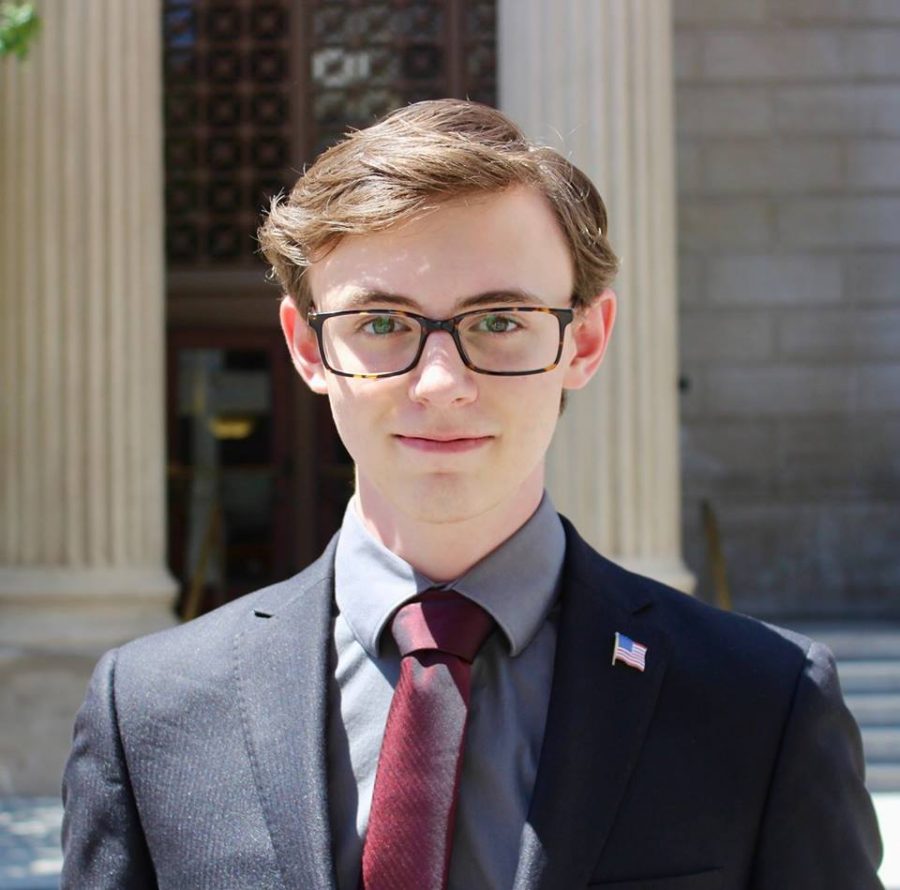Beto O’Rourke: The Possible Key to Democratic Success
John Feighery ’19 worked as an intern in Beto O’Rourke’s congressional office during the summer of 2018.
To the excitement of many political journalists, Democratic presidential campaign rumblings began just days after the 2018 midterm elections. Potential candidates began to visit swings states, accept daytime talk show interviews, and even put together exploratory committees to gauge the potential for campaign traction. The 2020 Democratic presidential candidate pool promises to be one of the largest and ideologically diverse in party history.
Of all the potential candidates vying for the presidency, there is one rising star in particular: Beto O’Rourke, the representative for Texas’ 16th congressional district in El Paso. O’Rourke made national news with his bid for U.S. senator when he went up against incumbent senator Ted Cruz, despite the fact that no Democrat has held statewide office since 1994. Beto, as he has come to be known, utilized both charisma and honesty to create a campaign that energized voters all across the country, propelling him to superstar status virtually overnight. Though he lost, it was by a much narrower margin than people predicted. “He is a magnificent speaker, as anyone who watched his speech the night he lost could tell you,” said John Feighery ’19, who interned in his Congressional office. “He is a tireless worker, exemplified by his accomplishment in becoming one of the only candidates in history to have visited all 254 counties in Texas on the campaign trail.”
His down-to-earth nature also allowed Beto to become a fundraising powerhouse, gaining him the approval of both sides of the Democratic party. He raised $70 million during his senate campaign via individual donations, and has been endorsed by grassroots organizations such as MoveOn.com as well as by establishment party members. For example, President Obama applauded the fact that Beto’s message seemed to come less from what he believed would get him elected and more from what he saw as important issues to be addressed. He even compared Beto’s campaign to his own, attributing his own popularity to people’s belief that he meant what he said with unadulterated honesty.
“If [Beto O’Rourke] believes the burden of the job will detract from his ability to be a good father and a good husband, he will not run in 2020 regardless of his chances or the wishes of the country at large,” said said John Feighery ’19.
Many of President Obama’s former aides and staff have reached out to Beto to offer assistance when it comes to a presidential bid, as they see parallels to the unlikely campaign they took part in ten years ago. Dan Pfeiffer, former Senior Advisor to President Obama, commented on the fact that much of Washington thinks that Beto is not enough of a political insider to run for president, similar to how they believed Obama’s campaign in 2008 was bound to crash and burn.
The fact that Beto is not an establishment candidate may actually play to his advantage. In 2016, Hillary Clinton’s very public political history made her an establishment candidate who would create predictable policies. On the other hand, Donald Trump’s inexperience, and therefore lack of political history, allowed people to project their hopes for Washington onto him. This also allowed him to repeat those hopes back to them without contradicting previous political decisions.
Similarly, Beto O’Rourke allows people to project their progressive hopes onto him, making him seem like a candidate that people across the Democratic political spectrum can support. However, whether or not he is the Progressive candidate that the media makes him out to be is not yet clear. “He said that he is of the centrist party, and when people ask him if he is a progressive candidate he says, ‘Well, I don’t really like labels, I don’t want to be associated with that’,” said A.P. U.S. History teacher Ms. Sagalchik. While Beto was a progressive sweetheart in his campaign against Senator Ted Cruz, it is unclear whether he would continue to shine in a Democratic candidate pool saturated with lifelong progressives.
However, the speculation surrounding Beto’s presidential bid all hinges on one important factor — whether he actually decides to run for president. “From the time I’ve spent with Beto personally, I can reaffirm his commitment to his family and that if he believes the burden of the job will detract from his ability to be a good father and a good husband, he will not run in 2020 regardless of his chances or the wishes of the country at large,” Feighery said. After all, family comes first.
Sarane James is a Copy Chief for ‘The Science Survey’ and a Groups Section Reporter for ‘The Observatory.’ As a Copy Chief, Sarane edits the work...

